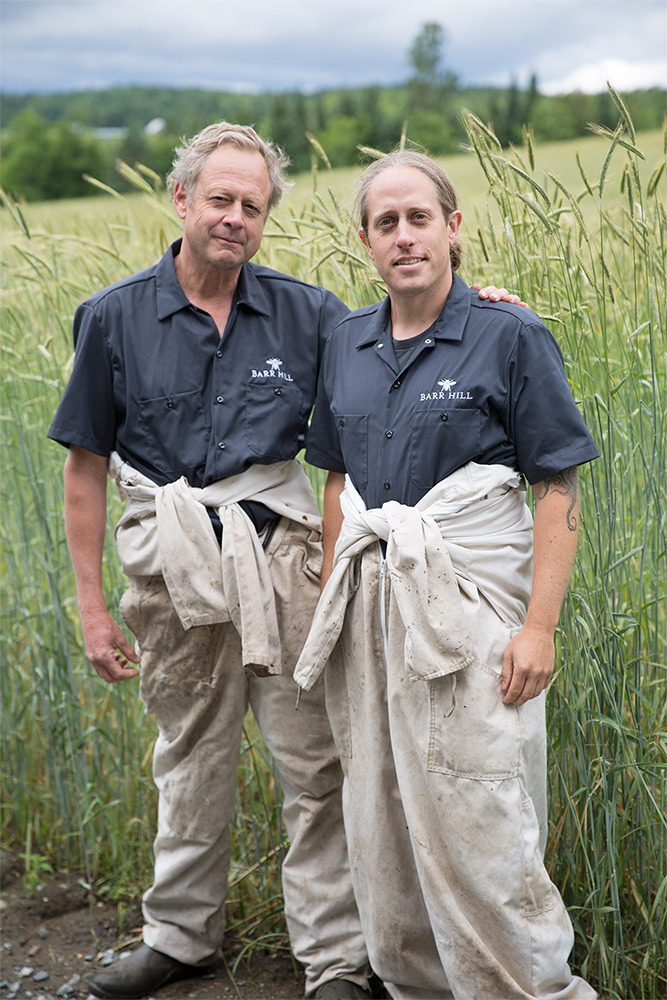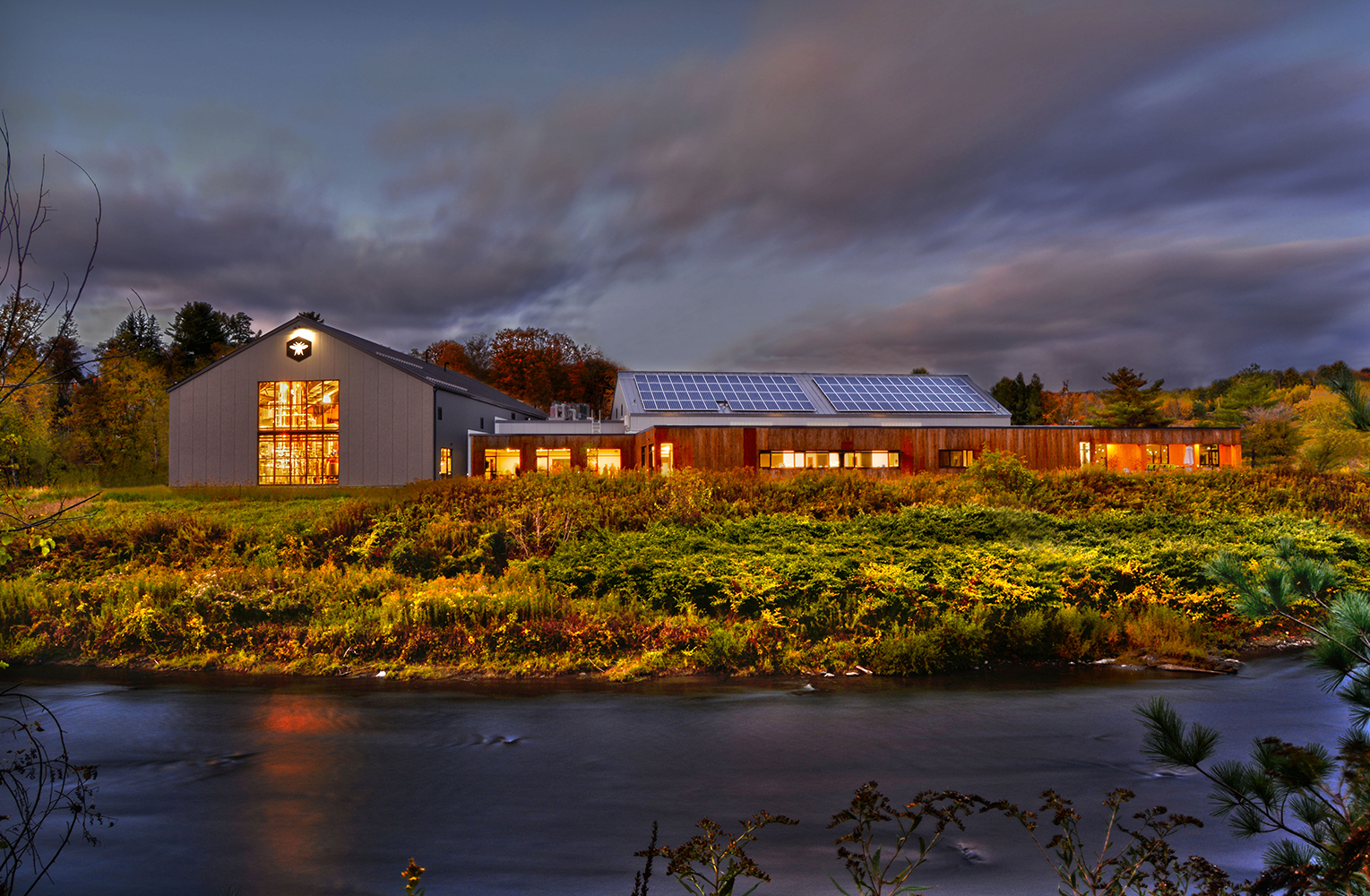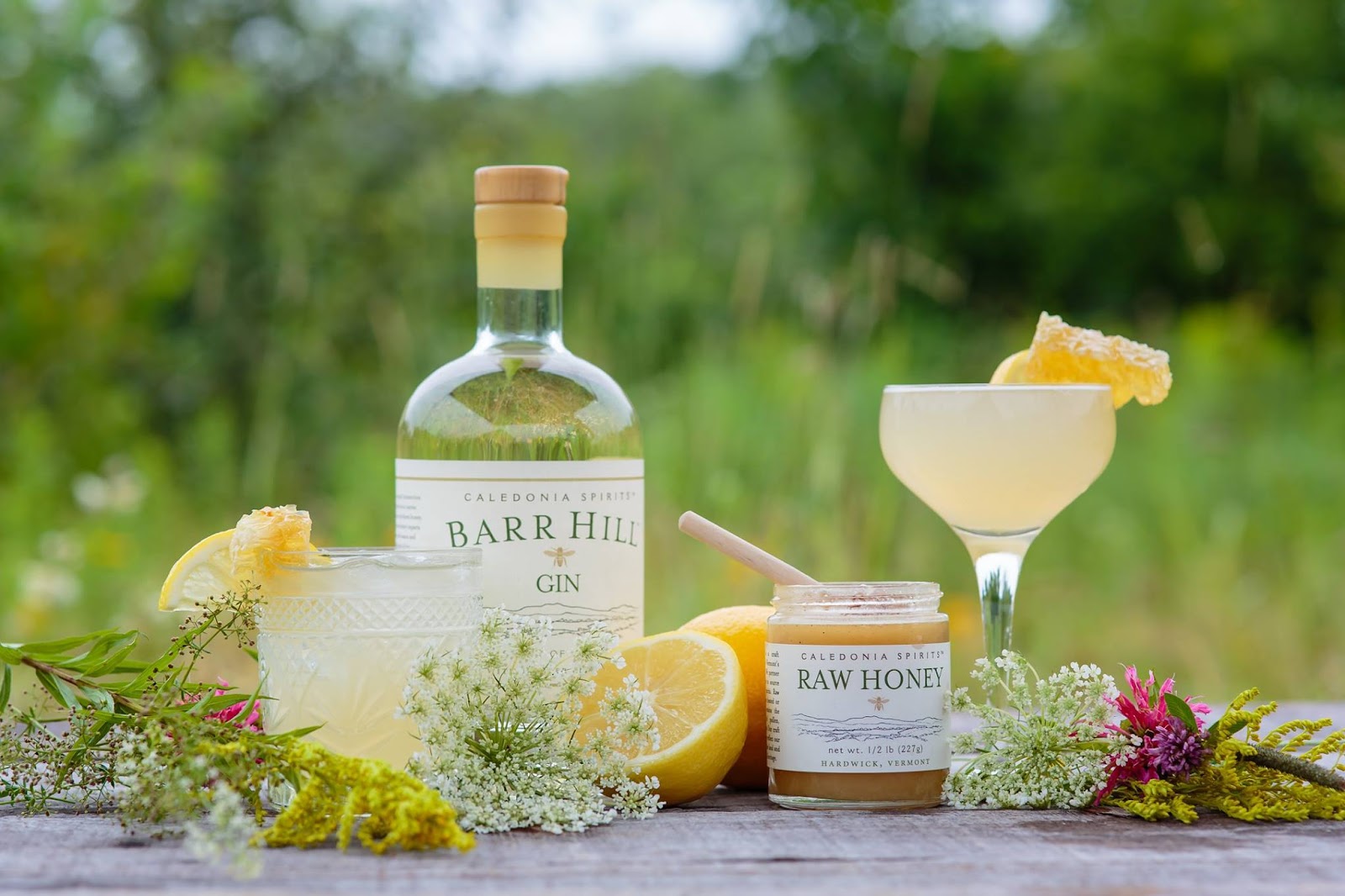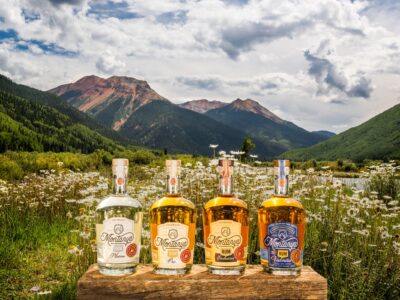Consensus has covered a few craft gins dedicated to raising awareness about protecting animals like elephants and whales. This work is done through fun promotional events or charitable donations from sales. Barr Hill Gin by Caledonia Spirits is doing something similar for threatened bee populations in the Green Mountain State.
Barr Hill is the product of two friends, Ryan Christiansen and Todd Hardie, who began experimenting with gin distilling in 2011. The name was inspired by the Barr Hill Nature Preserve near Greensboro, VT. Their first distillery was located in Hardwick, VT, just a short drive from Greensboro.
Both founders bring interesting backgrounds to gin distilling. Hardie is a lifelong, renowned beekeeper, while Christiansen owned a home brewing supply store in Plainfield, VT. “After meeting Todd, I was instantly captivated by his agricultural mission, and so, I sold my homebrew business to enter the distilling world,” Christiansen told Consensus.

Their liquor stood out by using a special ingredient: raw honey. It brings out a fresh, bold taste of botanicals foraged by the bees. They sent batches to the New York and Hong Kong International Spirits Competition, winning Double Gold and Best Gin of the Year. These accomplishments were the catalyst for Caledonia Spirits as an enterprise. Since 2012, the distillery has produced up to three distillations a day.
Now perfecting their craft at Gin Lane in Montpelier, their new home since 2019, Hardie and Christiansen have developed two new spirits – Barr Hill Vodka and Tom Cat Gin.
The distillery still uses raw honey in both, but it ages Tom Cat in American oak barrels for six months. Christiansen said they could use up to three pounds of the sticky stuff to make each 750-milliliter bottle of vodka. Juniper berries are also infused in Barr Hill gin.

Using raw honey has prompted Caledonia to take up an important sustainability initiative: protecting bee populations. Without it, Barr Hill would lose its signature ingredient and taste. The distillery has pledged to save 250,000 square feet of pollinator habitat, a record-breaking number set this past year.
“The idea is to partner with the bees who are helping us capture the terroirs of this region,” said Harrison Kahn, vice president of marketing at Caledonia.
How do they save all this land for bees to pollinate? It’s all thanks to Bee’s Knees Week, a lively social media campaign started by the distillery.
Since 2017, they have encouraged customers to create the signature Bee’s Knees cocktail, a mixture of Barr Hill gin, lemon juice, and honey shaken over ice. For Bee’s Knees Week, consumers can make the drink at home, or they can order the cocktail at their favorite bar and share a photo on social media with the hashtag #beeskneesweek and tagging @barrhillgin. The distillery will plant 10 square feet of bee habitat for every image. The 2022 edition of Bee’s Knees Week ran from Sept. 23 to Oct. 2.
The week is designed to raise awareness about how pesticides and Colony Collapse Disorder threaten bee populations. Caledonia has gone above and beyond to protect these essential creatures. “In the last three years alone, our efforts have created over half a million square feet of new pollinator habitat,” Christiansen explained. In 2021, the company helped protect 4.5 acres of pollinator habitat.

Bee’s Knees Week is helping raise awareness of the vital role bees play in our ecosystem. For example 90% of all pollinating plants and 30% of our food rely on animal pollination, especially honeybees.
The tiny, furry insects account for the pollination of 90 different crops. Without them, the U.S. could lose over $20 billion worth of food.
The good news is numerous bars across the country participate in Bee’s Knees Week. “Bartenders, who need citrus, herbs, and other ingredients that depend on pollination, have emerged as some of our most impassioned allies,” Christiansen said. This active social engagement is doing wonders for bee protection while teaching customers about how they can help.
All the honey used in Barr Hill liquors is sourced from beekeepers within a 250-mile radius of Montpelier, keeping the supply chain local and sustainable. It helps encapsulate the flavor of the surrounding wildflowers. It’s a tribute to the bees who help make these gins and vodka so unique.
“A few years ago, we decided to broaden our program to support all pollinators — not only honey bees — and so we evolved the program to be more engaging and educational,” Christiansen said.





